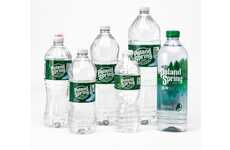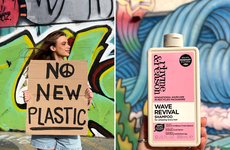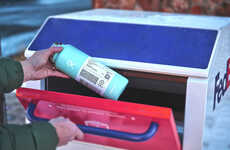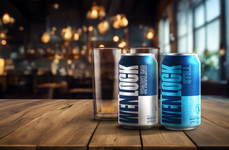
Poland Spring Provides Help with Recycling on Instagram
Laura McQuarrie — August 16, 2019 — Eco
References: instagram & foodandwine
Even though many sustainably minded consumers are taking an interest in reducing the amount of waste they generate, it can be confusing to know what kinds of materials can and can't be recycled—fortunately, bottled water brand Poland Spring and nonprofit The Recycle Partnership have joined forces to offer help with recycling. While there are countless graphics, videos and other resources that can be consulted to determine what's accepted in one's city recycling program, Poland Spring directly responds to recycling questions from users on Instagram.
After using the #NotTrash hashtag on a photo of an item, an Instagram user can expect to get a fast response to whether the item can be recycled or not. Beyond a simple "yes" or "no," the brand also helps to educate consumers on what symbols to look for on the packaging so that they'll know for next time.
After using the #NotTrash hashtag on a photo of an item, an Instagram user can expect to get a fast response to whether the item can be recycled or not. Beyond a simple "yes" or "no," the brand also helps to educate consumers on what symbols to look for on the packaging so that they'll know for next time.
Trend Themes
1. Social Media Recycling Assistance - Using social media platforms like Instagram to provide fast and personalized responses to recycling inquiries, brands can better engage with consumers and promote sustainable practices.
2. Online Education and Awareness - By leveraging digital platforms, brands can educate consumers about recycling guidelines, symbols, and best practices, fostering a more informed and environmentally conscious society.
3. Collaborative Partnerships for Sustainability - Brands can team up with non-profit organizations and recycling initiatives to create innovative programs that support and promote recycling efforts on a larger scale.
Industry Implications
1. Beverage Industry - Beverage companies can enhance their brand reputation and consumer loyalty by implementing social media recycling assistance programs that educate customers on proper recycling practices for their product packaging.
2. Social Media and Technology - The intersection of social media and technology presents opportunities for platforms to develop tools and features that facilitate recycling education and engagement with users, creating a mutually beneficial relationship.
3. Non-profit Organizations and Sustainability - Non-profits focused on sustainability can collaborate with brands to create initiatives that leverage social media platforms, raising awareness about recycling and promoting environmentally friendly practices.
6.1
Score
Popularity
Activity
Freshness























